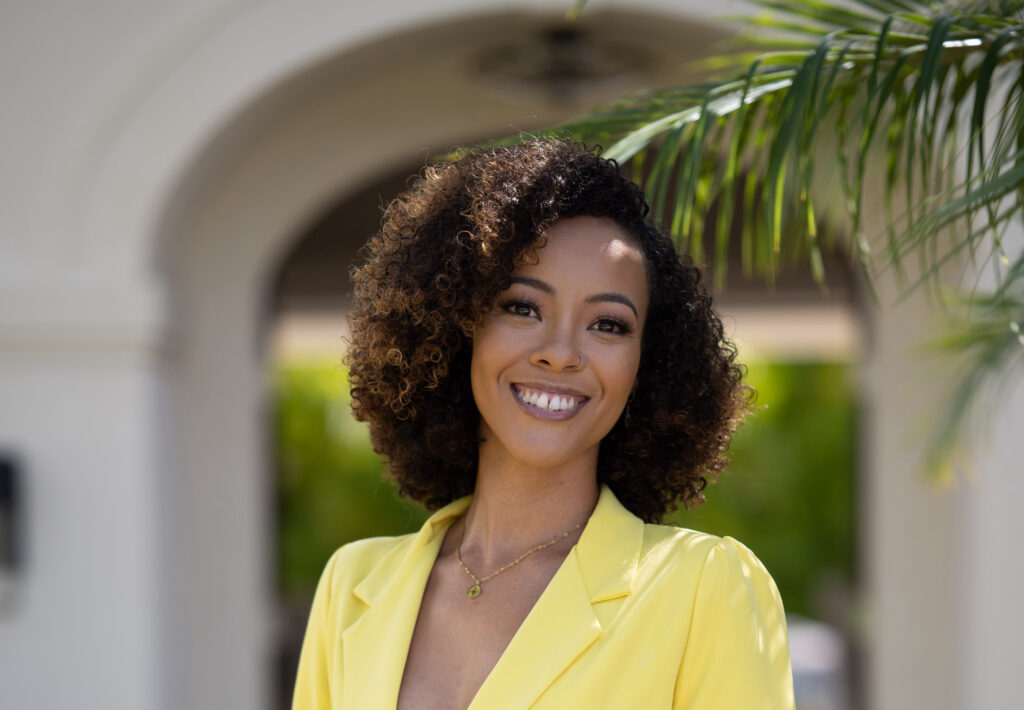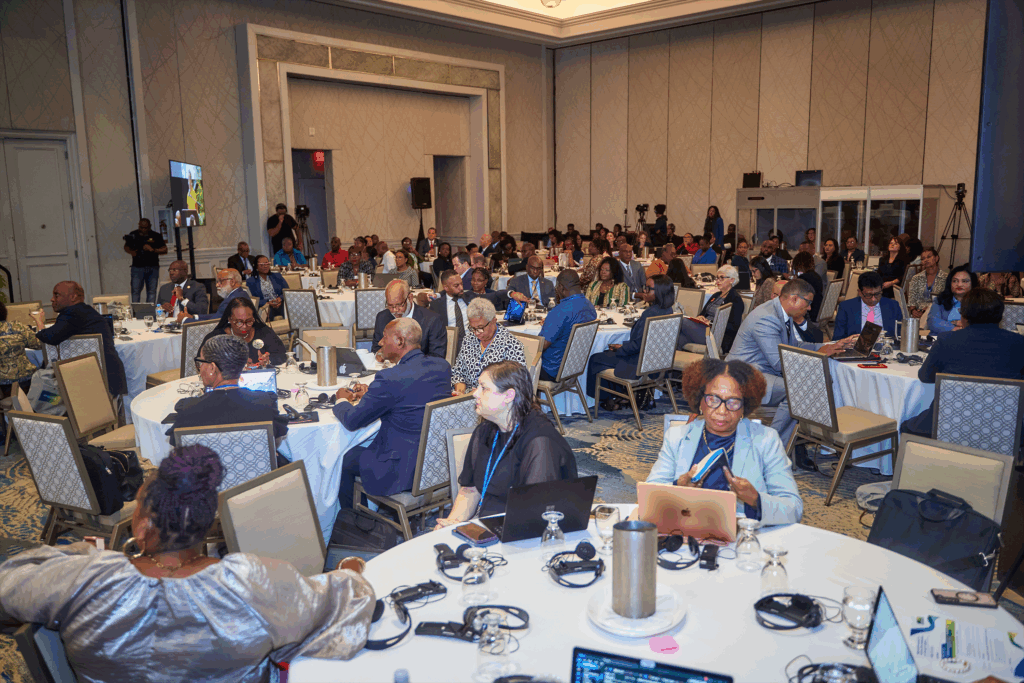When Deiann and Tonya sat down to speak about breast cancer, their words were heavy with experience, loss, and determination. Both women have faced cancer — one as a caregiver, the other as a survivor — and they share one urgent message for Barbadians this Cancer Awareness Month: Don’t wait too long to get checked.
Deiann Sobers, a representative of the Barbados Association of Palliative Care, says one of the greatest concerns during Breast Cancer Awareness Month is how many women are still being diagnosed late.
“Why are we losing so many women early, or not reporting early enough to breast cancer?” she asked. “Not only breast cancer, cervical cancer, colon cancer, these are all cancers that can be detected early if we pay attention to the symptoms.”
She believes fear, embarrassment, and misconceptions about cost or marital expectations are among the biggest barriers preventing women from seeking timely medical care.
“Some women think, ‘If I lose my breast, what will my husband think of me?’ or, ‘If I have a hysterectomy, what happens to my sex life?’” she explained. “But you have to think about your life first. You can’t enjoy any of that if you’re not alive.”
Tonya Byer, a cancer survivor, echoed that message. She says people too often feel pain, ignore it, and reach for home remedies instead of professional help.
“You take two Tylenol, drink some mint tea, or use a bush remedy, and it goes away for a while. But then it comes back, and you do the same thing again,” she said. “By the time it blows up, it’s too late.”
While she loves bush teas and natural remedies, Tonya stresses the importance of confirming what’s wrong first.
“When it comes to your health, there’s nothing blissful about ignorance,” she said. “Even if you prefer natural treatments, at least know what you’re dealing with. Get tested, get diagnosed, then decide what route you want to take.”
Her perspective is rooted in personal experience. Tonya was diagnosed with breast cancer in 2021 and underwent surgery, chemotherapy, and radiation. Her mother-in-law, however, wasn’t as fortunate.
“She felt a lump and tried natural remedies — castor oil, bush rubs — but never told anyone,” Tonya recalled. “We only found out when we noticed a strange smell in the house. It turned out she had an open wound on her chest. By then, the cancer was advanced.”
Her mother-in-law’s journey was painful and short. Despite multiple rounds of chemotherapy, her condition worsened rapidly. Within a month, Tonya said, the once-active woman who had cared for her own mother with dementia became bedridden.
“Her decline was so fast,” Tonya said solemnly. “One month she was up and about, the next she couldn’t get out of bed.”
Asked why she never told the family, Tonya said they chose not to ask.
“When someone’s at that stage, you don’t want them to feel guilty,” she said. “You can’t roll back time. You just deal with what’s in front of you.”
Still, Tonya believes her mother-in-law’s silence came from a place of love and pride.
“She didn’t want to be a burden. She was the kind of woman who would only ask for help if she really couldn’t do it herself. But in the end, not saying anything made things harder for everyone.”
That’s why both women are passionate about spreading awareness. They want women and men to know that talking about symptoms, getting screenings, and asking for help can make all the difference.
“It’s not just about breast cancer,” Deiann reminded. “It’s about listening to your body. If something doesn’t feel right — bleeding, lumps, changes in your skin, prolonged constipation — don’t ignore it.”
She adds that early detection doesn’t have to be expensive.
“You can go to the polyclinic, your doctor, or even a nurse or nutritionist, someone who will listen. Your life is worth more than your fear.”
Both women agree that support systems are vital for anyone facing a cancer diagnosis.
“You need people around you,” Tonya said. “Whether it’s family, friends, or a group, that network helps you get through the mental and physical strain.”
Their shared message this October is simple but profound: Listen to your body. Get tested early. Don’t be ashamed to ask for help.
Because, as Tonya put it, “Waiting will never benefit you. Early action is the best chance you have.”
When Tonya sat in the oncology ward of the Queen Elizabeth Hospital (QEH), laptop plugged into the nearest outlet, she wasn’t just a cancer survivor — she was a caregiver, an employee, a wife, and a daughter-in-law doing her best to hold it all together.
For months, Tonya balanced her full-time job with caring for her mother-in-law, who was fighting late-stage breast cancer.
“Every time you got something sorted, something changed. We installed all the handrails in the house, got everything ready, and then she couldn’t walk anymore. So now you had to get a commode for the bedroom. It felt like every day something new was happening,” she recalled.
The financial strain was just as intense.
“Then came the medication,” Tonya said. “Some of it, like morphine, had to be bought privately because the QEH pharmacy lines were so long. You’re talking hundreds of dollars in medication. It adds up.”
Even as she navigated those costs and logistics, Tonya still had to show up for work. Fortunately, her employer’s hybrid system offered some relief.
“We have a three-two system, three days in office, two from home,” she explained. “So I would use my work-from-home days to take her to her hospital appointments. I knew where every outlet was at the hospital. I’d be there, hotspotting, working during chemo sessions. Sometimes I’d even take meetings from the hospital cafeteria.”
Still, the emotional and physical toll was relentless. “You’re trying to give 100 per cent at work, but you’re mentally drained. You can’t separate the two. You can’t leave personal Tonya at home and just bring work Tonya to the office. You’re one person,” she explained.
And on top of caregiving, Tonya was managing her own ongoing battle — breast cancer.
“I’m not at the place where I can call myself a cancer thriver yet,” she admitted. “I’m still in survival mode.”
Tonya’s cancer was 100 per cent oestrogen-driven, and though she completed chemotherapy, her treatment continues.
“I was put into menopause immediately during chemo,” she said. “Now I’m on medication to keep my hormones balanced. But the side effects are tough, vision issues, bone density loss, and all sorts of complications.”
She described losing sight in one eye after a severe flare-up caused by Tamoxifen, leading doctors to switch her to another medication. But that new drug brought new challenges.
“I’m now at risk for brittle bones,” she said. “So I’m taking medication to prevent one thing that ends up causing another. It’s a constant fight.”
Beyond the physical strain, Tonya says the local cancer care system needs a more holistic approach.
“You see an oncologist, a surgeon, a cardiologist — but there’s no joined-up system,” she said. “After treatment, I started seeing a nutritionist to rebuild my body. But you really have to advocate for yourself.”
Advocacy became a recurring theme for her. She attended all her mother-in-law’s medical appointments to ensure the right questions were asked.
“Not everyone knows what to ask,” Tonya said. “And if you don’t know, how can you ask? That’s why I made sure to be there.”
Her husband, meanwhile, bore the emotional and financial weight of watching both his wife and mother battle cancer.
“He’s a soldier,” Tonya said with pride. “He missed so many days of work because he was the one driving us to appointments, managing things at home. There’s not enough support for men in these situations — they’re going through it too.”
When his mother passed, grief hung heavy in their home. “Some days, the whole house smells like her,” Tonya said softly. “Those days, we just take space and acknowledge it. He’ll say, ‘I’m feeling sad today,’ and we just sit with it. He communicates, he cries, he doesn’t bottle it up.”
Tonya’s journey has taught her that mindset is everything.
“Don’t ever let negative thoughts settle,” she urged. “Your brain controls everything. The moment you start doubting your survival, it affects your healing.”
Through it all, Tonya remains thankful for the kindness of healthcare staff, especially at the QEH’s Oncology Department.
“People always say the hospital gives poor treatment, but our experience there was positive. The nurses were professional and kind. There’s one I call the ‘singing nurse’, she’d walk around singing while patients were getting their drips. It lifted everyone’s spirits,” she said.
For Deiann, Tonya’s story underscores a national issue, one that blends healthcare access, family resilience, and education.
“People delay seeking help because of fear or pride,” she said. “But your life is more important than embarrassment or tradition.”
And Tonya agrees. “If you feel something [is] off, don’t wait. Get it checked,” she said firmly. “It could save your life, or the life of someone you love.”
louriannegraham@barbadostoday.bb
The post Fighting Cancer: The story of a caregiver and a survivor appeared first on Barbados Today.


